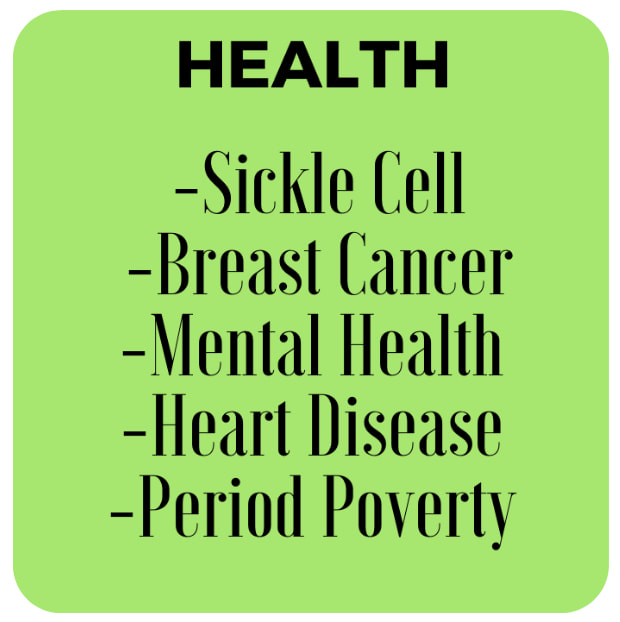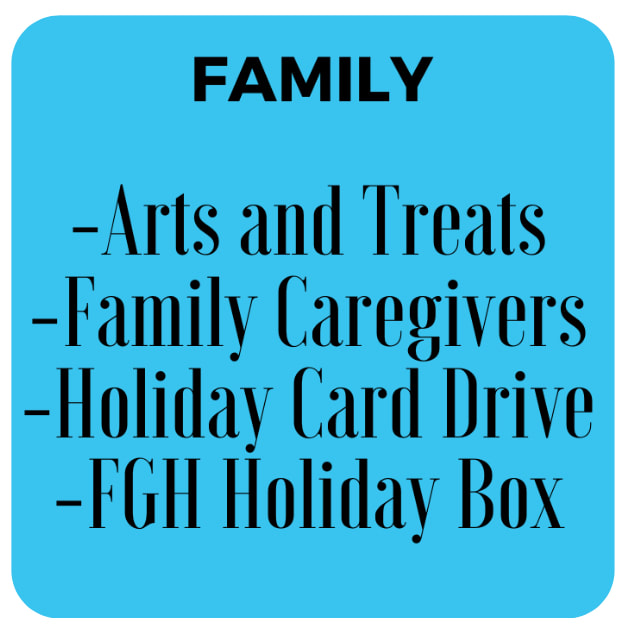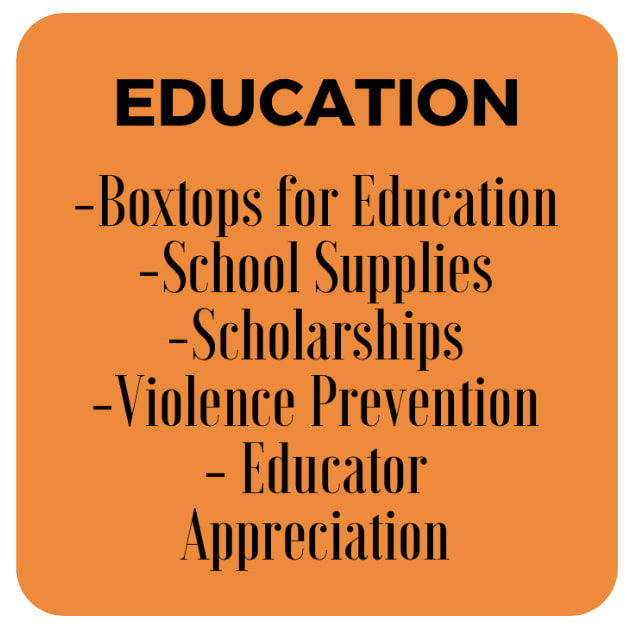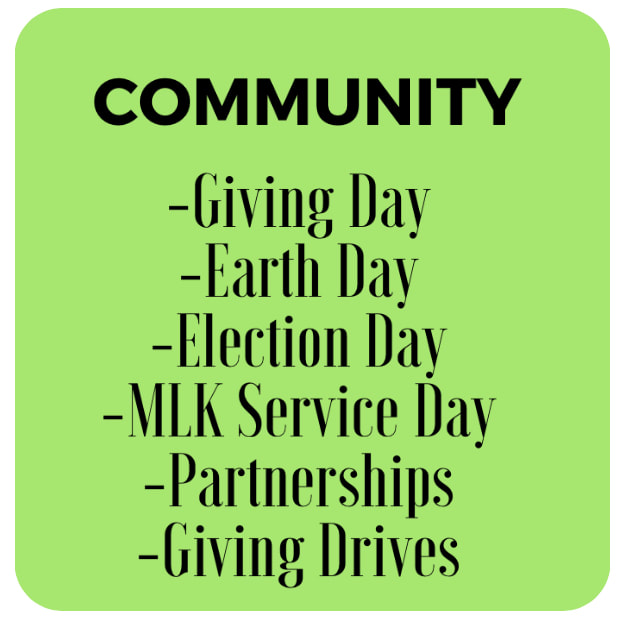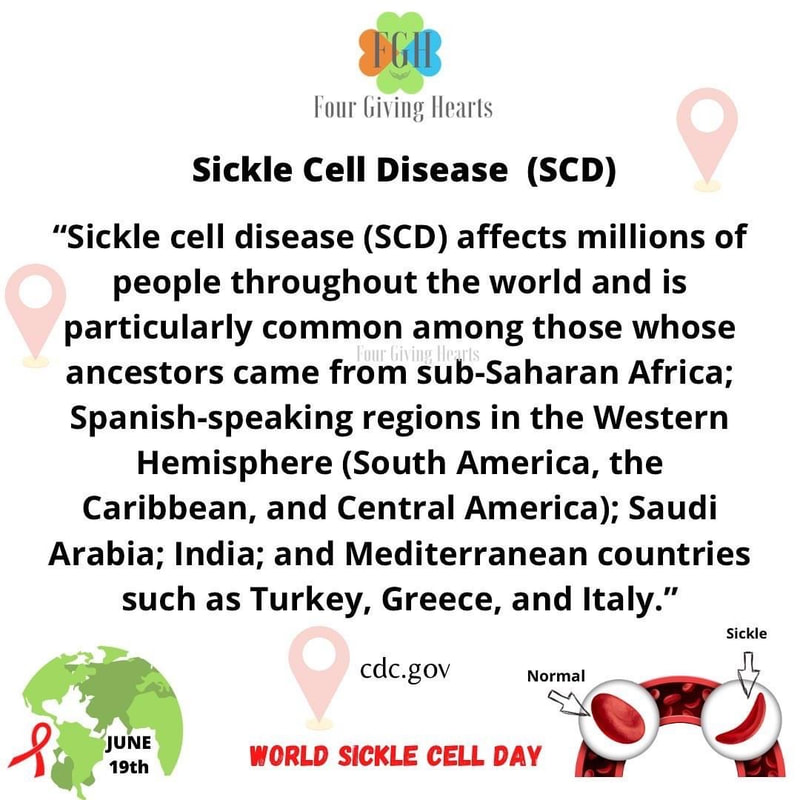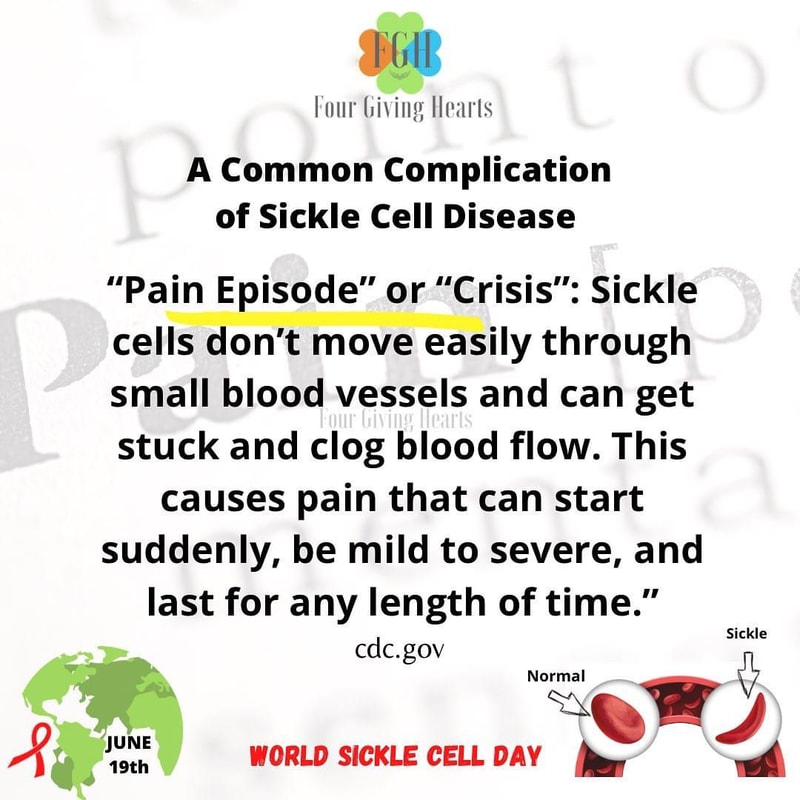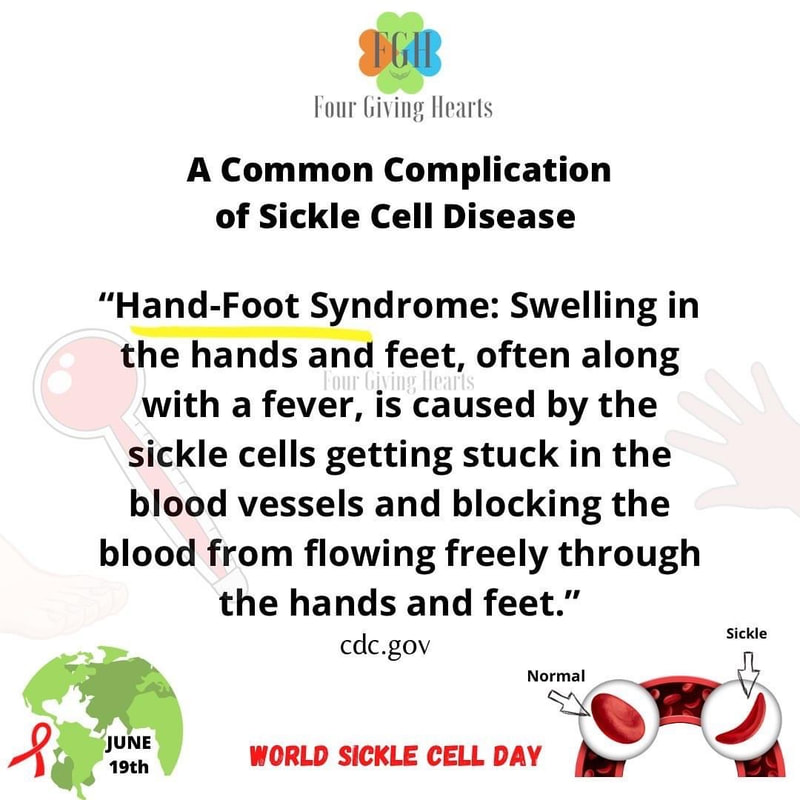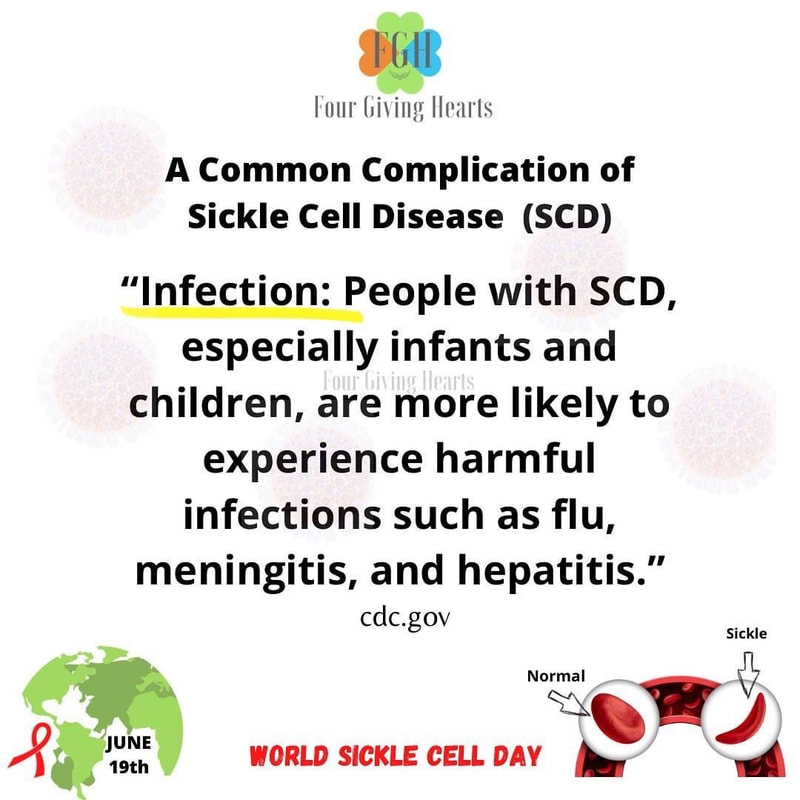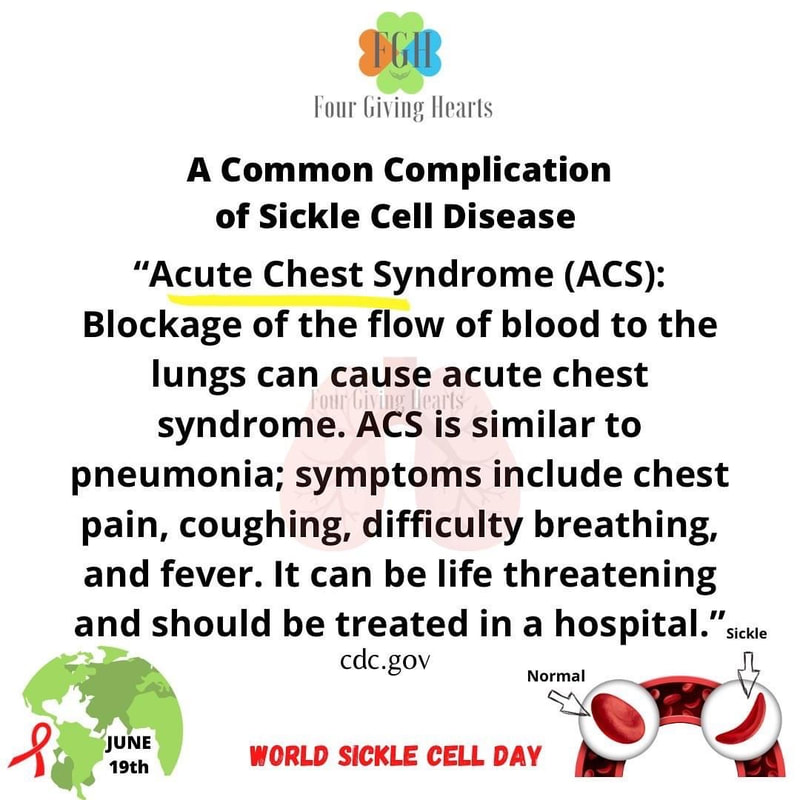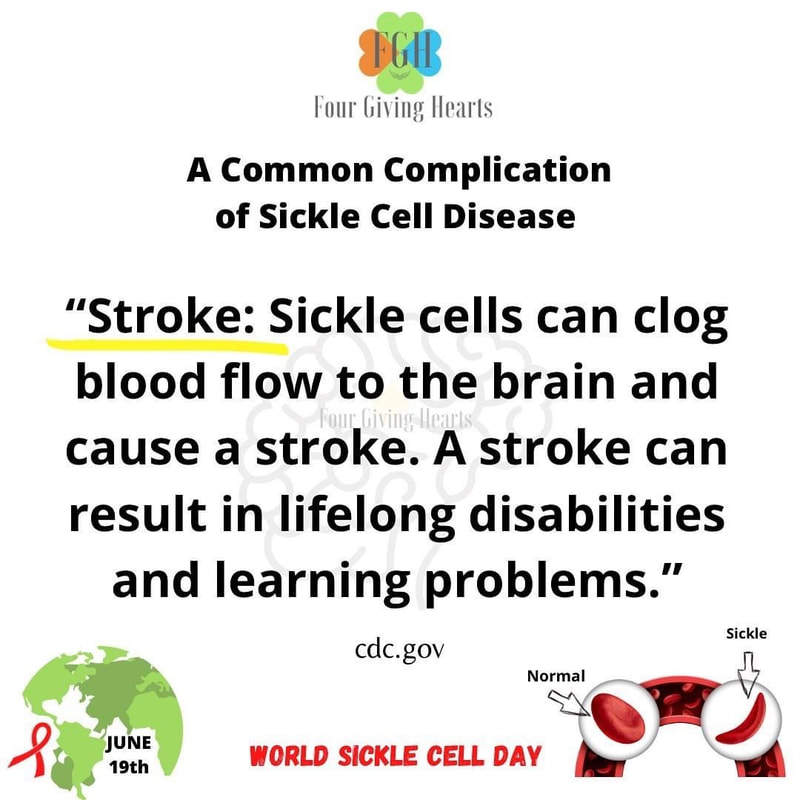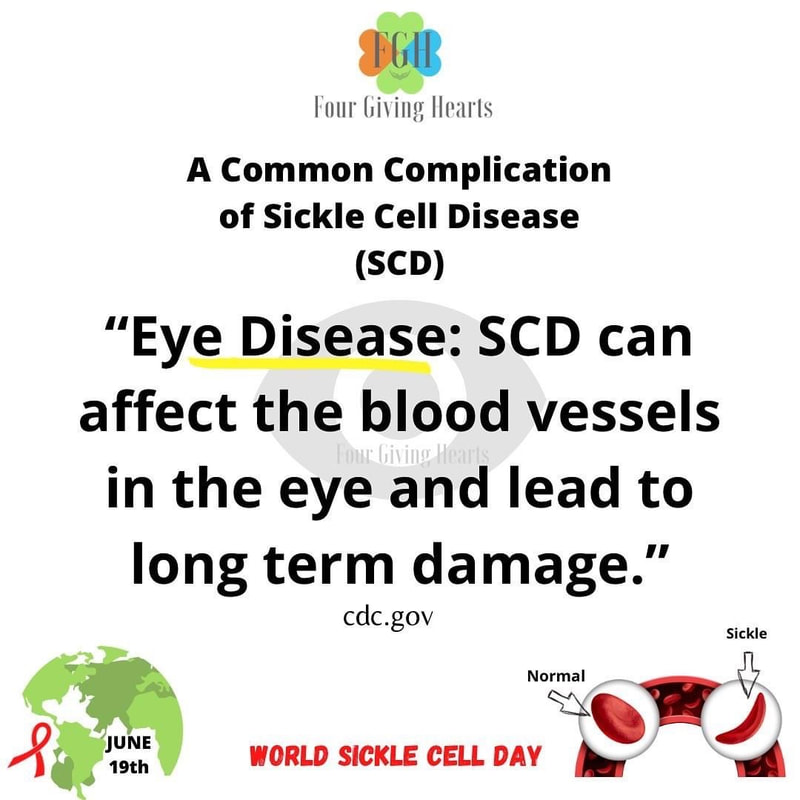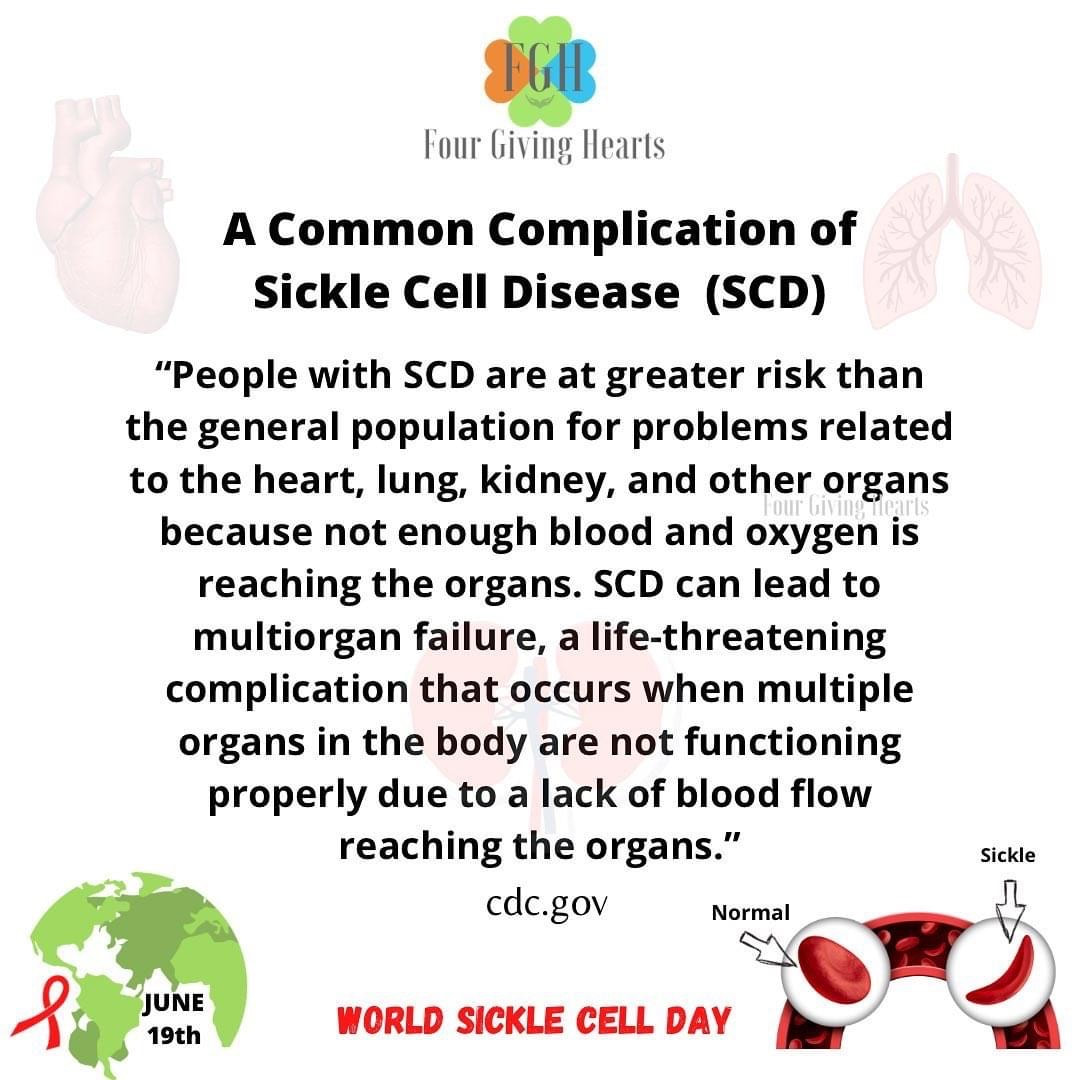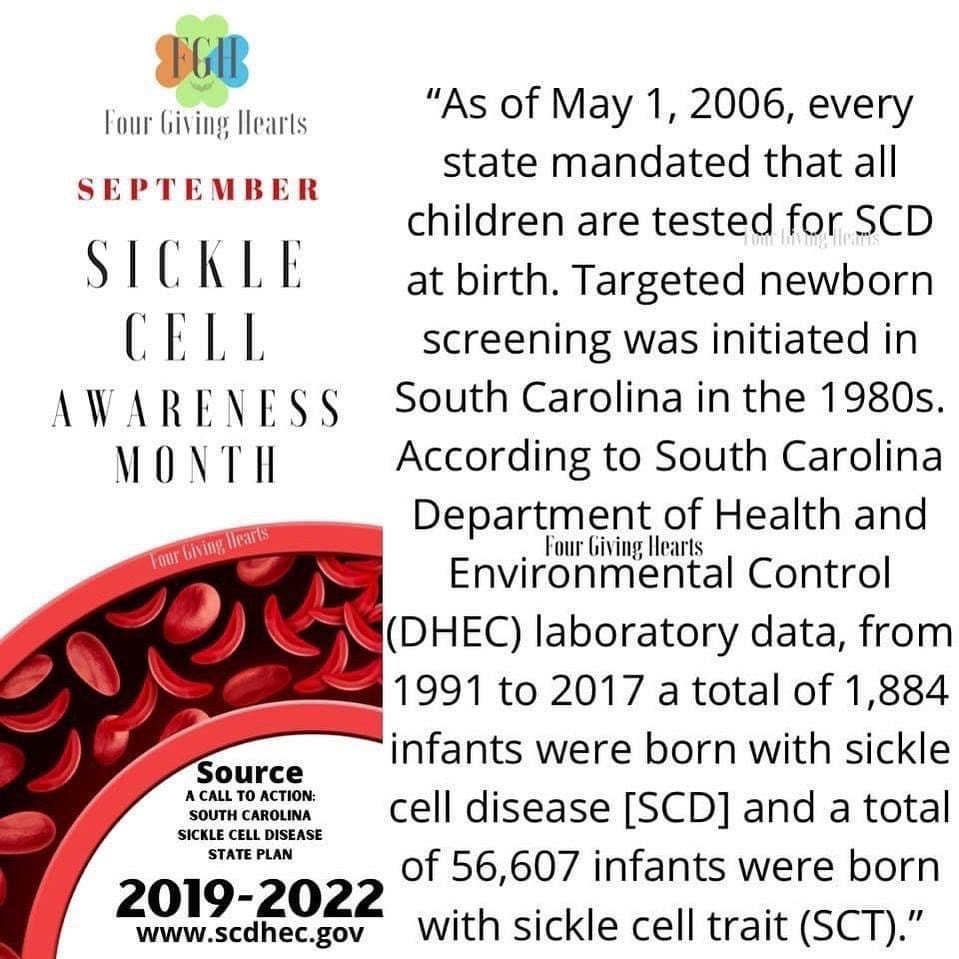Targets!
Lists are not all-inclusive.
We support various causes and provide essential items to community members, those in need, and/or those unhoused continuously. Many of our efforts coordinate with the assigned awareness day, week, and month for each cause, etc. We, however, advocate for mental health awareness (MHA) and sickle cell disease (SCD)/sickle cell trait (SCT) awareness year-round.
Why MHA?
We aim to provide safe spaces for listening, sharing, and growing. As an organization founded in memory of two brothers, the impact of grief/mental health struggles will always be a focus for Four Giving Hearts. We understand that mental health is as important as physical health.
Why SCD?
We aim to educate those near and far about SCD in memory of RJ McKnight, one of the hearts in “Four” Giving Hearts, and ALL warriors. "Sickle cell disease (SCD) is a common inherited blood disorder in the United States, affecting an estimated 90,000 to 100,000 Americans. SCD can lead to lifelong disabilities and reduce average life expectancy" (cdc.gov).1
About SCD 2 (See below)
Why MHA?
We aim to provide safe spaces for listening, sharing, and growing. As an organization founded in memory of two brothers, the impact of grief/mental health struggles will always be a focus for Four Giving Hearts. We understand that mental health is as important as physical health.
Why SCD?
We aim to educate those near and far about SCD in memory of RJ McKnight, one of the hearts in “Four” Giving Hearts, and ALL warriors. "Sickle cell disease (SCD) is a common inherited blood disorder in the United States, affecting an estimated 90,000 to 100,000 Americans. SCD can lead to lifelong disabilities and reduce average life expectancy" (cdc.gov).1
About SCD 2 (See below)
About SCD 3 (See below)
About SCD/SCT 4 (See below)
About SCD/SCT 5 (See below)
"If both parents have SCT, there is a 50% (or 1 in 2) chance that any child of theirs also will have SCT, if the child inherits the sickle cell gene from one of the parents. Such children will not have symptoms of SCD, but they can pass SCT on to their children. If both parents have SCT, there is a 25% (or 1 in 4) chance that any child of theirs will have SCD. There is the same 25% (or 1 in 4) chance that the child will not have SCD or SCT" ... "Most people with SCT do not have any symptoms of SCD, although—in rare cases—people with SCT might experience complications of SCD, such as pain crises. In their extreme form, and in rare cases, the following conditions could be harmful for people with SCT:
- Increased pressure in the atmosphere (which can be experienced, for example, while scuba diving).
- Low oxygen levels in the air (which can be experienced, for example, when mountain climbing, exercising extremely hard in military boot camp, or training for an athletic competition).
- Dehydration (for example, when one has too little water in the body).
- High altitudes (which can be experienced, for example, when flying, mountain climbing, or visiting a city at a high altitude).
Sickle Cell Awareness 6, 7, 8, and 9 (See below)
1. "About CDC's Work on Sickle Cell Disease"
https://www.cdc.gov/ncbddd/sicklecell/about.html#:~:text=Sickle%20cell%20disease%20(SCD)%20is,and%20reduce%20average%20life%20expectancy.
2. "What You Should Know About Sickle Cell Disease"
https://www.cdc.gov/ncbddd/sicklecell/documents/scd-factsheet_what-is-scd.pdf
3. "Complications of Sickle Cell Disease"
https://www.cdc.gov/ncbddd/sicklecell/complications.html
4. A Call to Action: South Carolina Sickle Cell Disease State Plan 2019-2022
https://scdhec.gov/sites/default/files/Library/CR-012241.pdf
5. "What is Sickle Cell Trait?"
https://www.cdc.gov/ncbddd/sicklecell/traits.html
Video Sources:
6. "What is Sickle Cell Disease?"
https://www.cdc.gov/ncbddd/sicklecell/facts.html
7. "Complications of Sickle Cell Disease"
https://www.cdc.gov/ncbddd/sicklecell/complications.html
8. "What is Sickle Cell Trait?"
https://www.cdc.gov/ncbddd/sicklecell/traits.html
9. "Blood Transfusions for Sickle Cell Disease Treatment"
https://www.ihtc.org/sickle-cell-blood-transfusions
https://www.cdc.gov/ncbddd/sicklecell/about.html#:~:text=Sickle%20cell%20disease%20(SCD)%20is,and%20reduce%20average%20life%20expectancy.
2. "What You Should Know About Sickle Cell Disease"
https://www.cdc.gov/ncbddd/sicklecell/documents/scd-factsheet_what-is-scd.pdf
3. "Complications of Sickle Cell Disease"
https://www.cdc.gov/ncbddd/sicklecell/complications.html
4. A Call to Action: South Carolina Sickle Cell Disease State Plan 2019-2022
https://scdhec.gov/sites/default/files/Library/CR-012241.pdf
5. "What is Sickle Cell Trait?"
https://www.cdc.gov/ncbddd/sicklecell/traits.html
Video Sources:
6. "What is Sickle Cell Disease?"
https://www.cdc.gov/ncbddd/sicklecell/facts.html
7. "Complications of Sickle Cell Disease"
https://www.cdc.gov/ncbddd/sicklecell/complications.html
8. "What is Sickle Cell Trait?"
https://www.cdc.gov/ncbddd/sicklecell/traits.html
9. "Blood Transfusions for Sickle Cell Disease Treatment"
https://www.ihtc.org/sickle-cell-blood-transfusions
